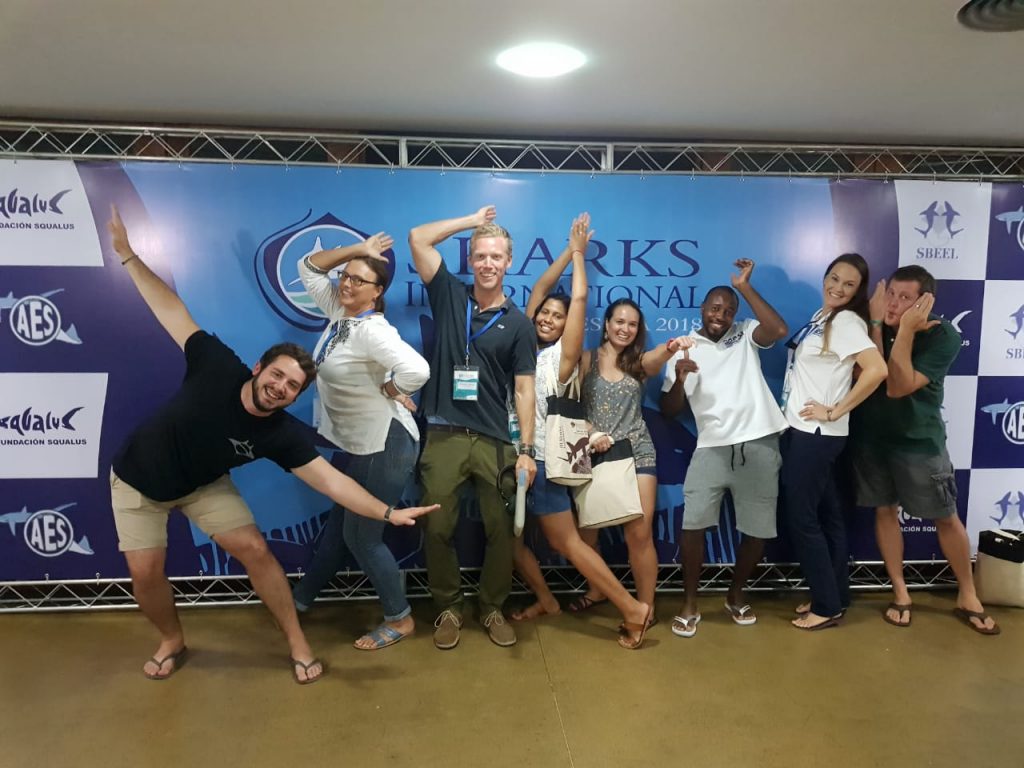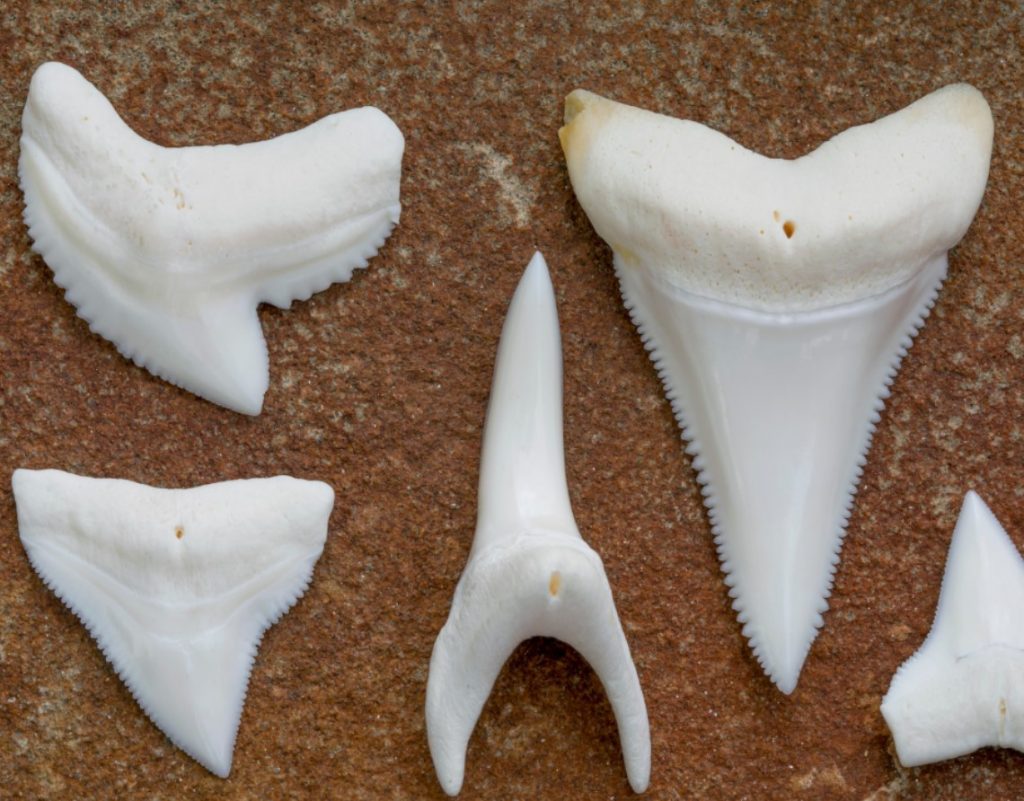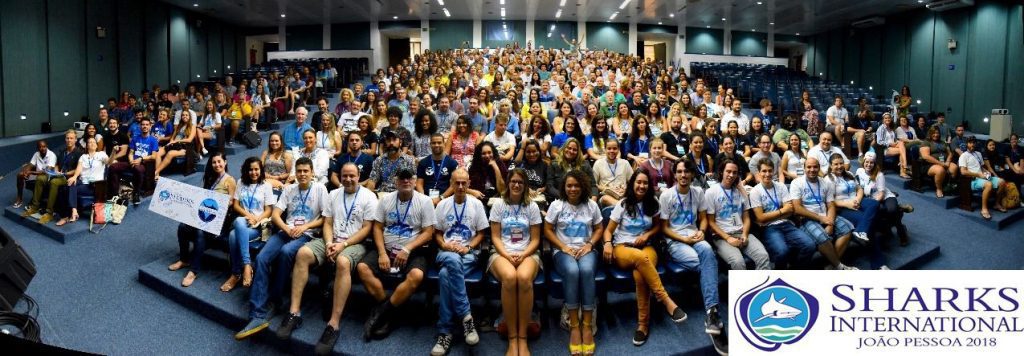
The start of June saw MarAlliance experts presenting exciting results from our collective shark and ray research efforts at the Sharks International conference – aka the World Cup of Sharks – in Joao Pessao, northeastern Brazil. This shark science and conservation marathon couldn’t have been more timely with both World Environment Day (June 5th) and World Oceans Day (June 8th) taking place that same week.
MarAlliance’s Team represented strongly with results from projects in five countries showcased to over 500 scientists through the lens of six posters and seven oral presentations, many side meetings and, last but not least, a remarkable keynote address by our Executive Director, Dr. Rachel Graham, one of two women scientists invited to give a keynote address at the conference.
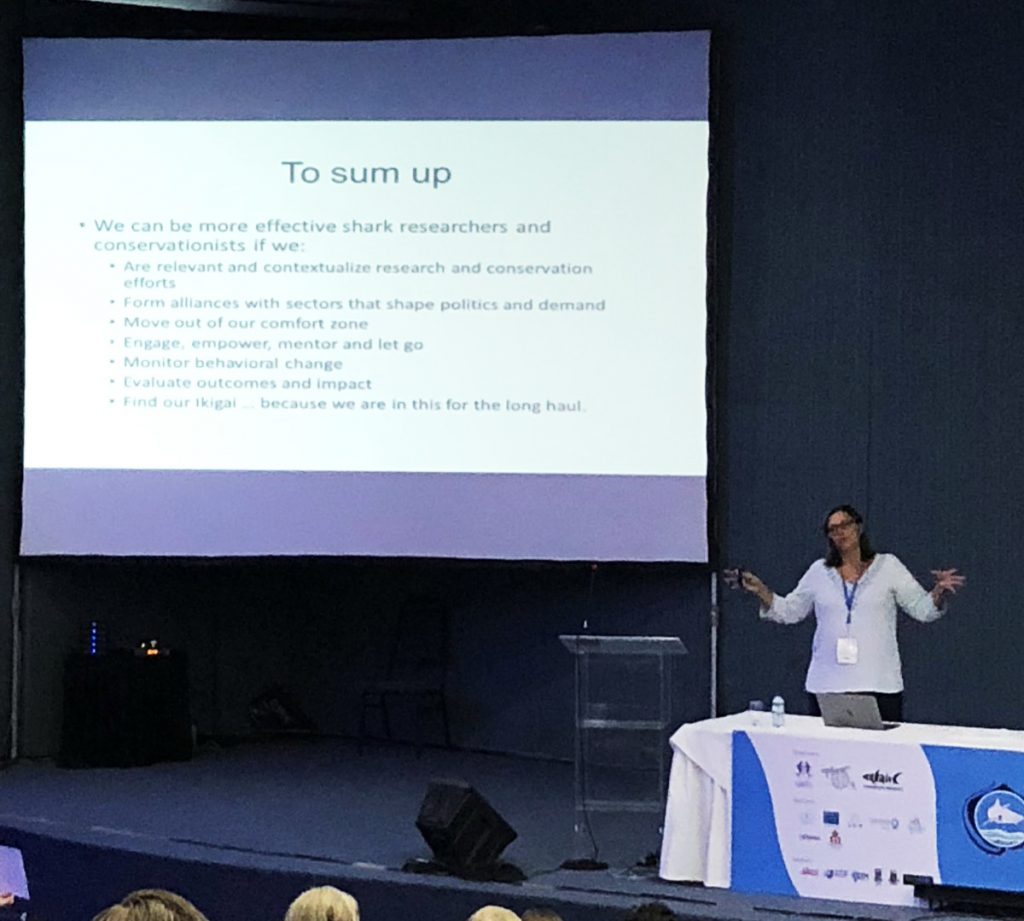
Dr. Graham engaged the audience fully by addressing sensitive topics essential to the well-being and sustainability of the global shark research and conservation community. Her address highlighted how shark research and conservation efforts in lower and middle income countries are rightfully transitioning from North-South parachute science and conservation initiatives (which doesn’t build local capacities nor has long-term benefits to the animals, local scientists, or communities) to “south-south” partnerships with local scientists and communities to deliver more durable and grassroots-led science and conservation. She stressed the importance of engaging with local stakeholders before barreling into conservation decision-making, notably when working with fishers “as fishermen have PhDs of the sea and can be wonderful research partners.” Dr. Graham also emphasized outreach is “not a dirty word” and is key to ensure our science has impact. Such efforts to engage with multiple audiences not only enabled MarAlliance to create ambassadors in the fishing and coastal communities who now engage with politicians on conservation topics, but it has also successfully fed our partners’ curiosity and has generated local pride in marine wildlife. She asked the delegates to practice “more inclusion and kindness” at all levels in their work and discussed the challenges for women juggling careers and families in shark science and conservation and the need to find a balance and happiness as this work is often hard, occasionally dangerous and definitely a long-term commitment. By doing so, Dr Graham finally gave a voice to these issues, which have impeded so many women following this path.
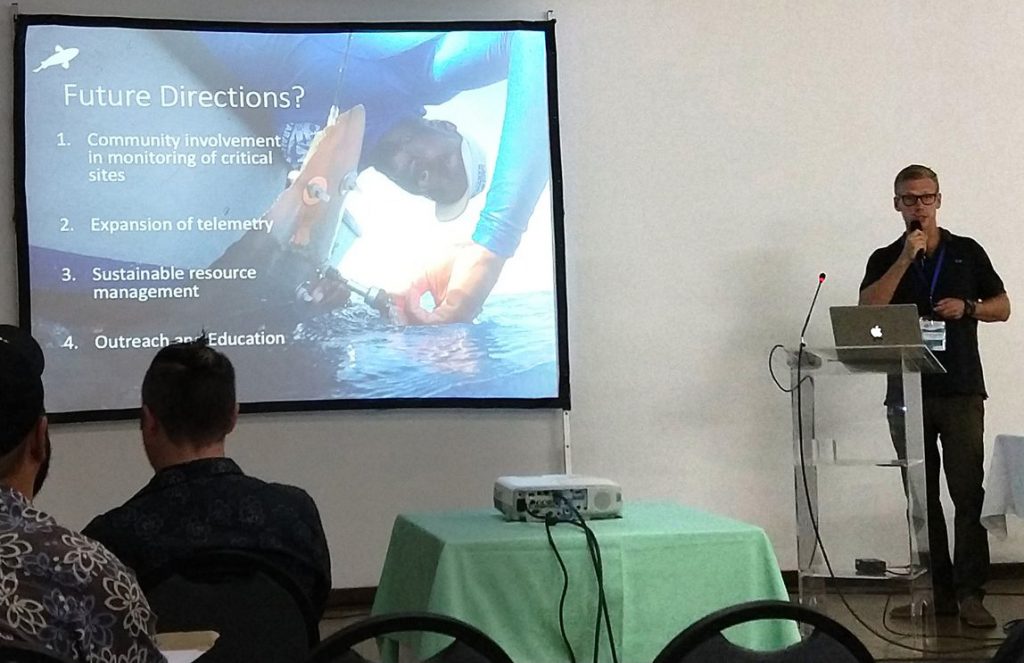
Seven oral presentations spanning several seas and many communities, highlighted MarAlliance’s participatory research. Incorporating fishers’ sawfish observations in Panama, monitoring with artisanal fishers sharks in the shark sanctuary in Honduras, and insights into the trade and consumption of sharks and rays in Honduras during the Lenten Season were a few of the talks given. Other topics addressed included the movement of grey reef sharks around two grouper spawning aggregations in Micronesia, ecological niche modelling of mantas distribution in the Western Central Atlantic Ocean and deep sea sharks of Meso-America threatened by fisheries interest. Our research in these areas are all providing information to create or refine management measures and prevent further depletion of shark and ray populations.
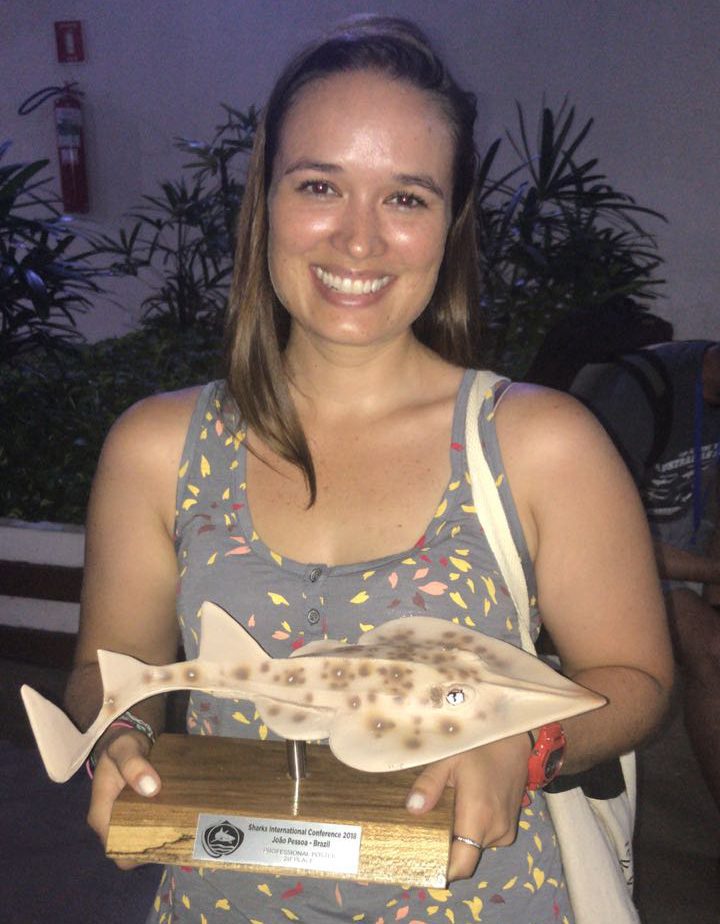
The breadth of our work was recognized as Panama Country Coordinator, Megan Chevis, received a professional poster award for the poster entitled Elasmobranch communities on Panama’s Caribbean coast: fisheries-independent monitoring in the Bocas del Toro and Guna Yala archipelagos by Chevis, Leyson, Batista and Graham.
While Sharks International finally wrapped for most of the team, our colleagues from Cabo Verde concluded their trip by putting theory into practice in several Brazilian classrooms. Country Coordinator Zeddy Seymour and Fisher and Field Associate Zé Luís Monteiro visited public schools in João Pessoa as part of expanding the reach of Sharks International and educating about sharks and marine conservation. They relished the chance to speak to kids about attitudes towards sharks, the ocean and the future and reached over 300 kids and eight teachers in two days with new ties forged across the Atlantic between Boavista and Cabo Verde.
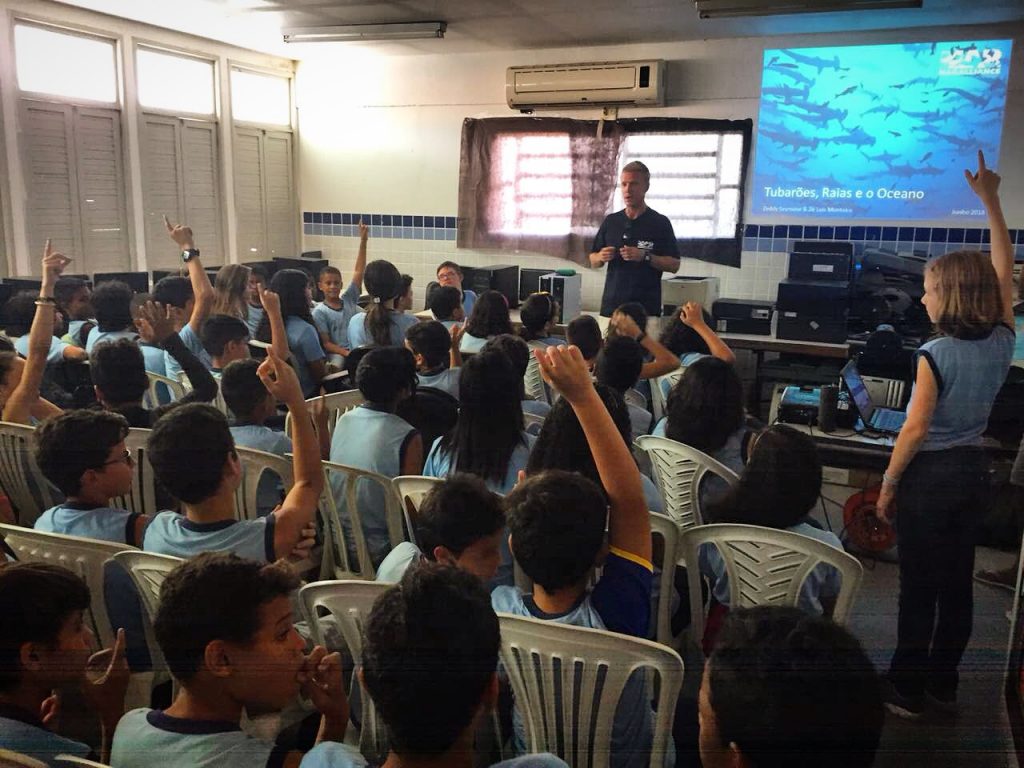
After a successful 2018 edition, our team very much looks forward to the next Sharks International conference in 2022 which will be hosted by colleagues in Valencia, Spain. In the interim we have much to do to secure a future for sharks and rays.
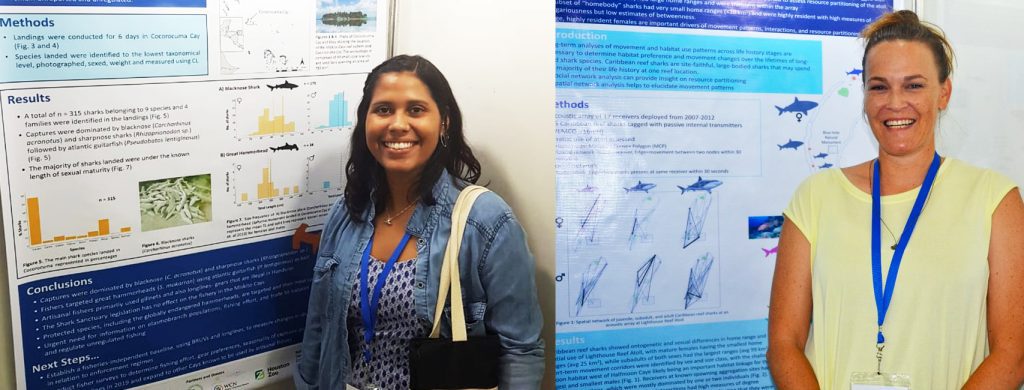
Can’t get enough shark science? Take a peek at our scientific posters:
- “Social behavior of Caribbean reef sharks at a remote atoll in Belize”
- “Population assessment of nurse sharks in Belize”
- “Characterizing an artisanal elasmobranch fishery in the remote Miskito Cays of Honduras”
- “Wait, we’re still alive! contemporary persistence of sawfish (Pristis) in Honduras” (available offline) | Ely Augustinus, Gabriela Ochoa, Rachel T. Graham
- “Elasmobranch communities on Panama’s Caribbean Coast: fisheries-independent monitoring in the Bocas del Toro and Guna Yala Archipelagos”
- “Use of traditional ecological knowledge to reveal trends in the artisanal and elasmobranch fisheries of Cabo Verde.”
